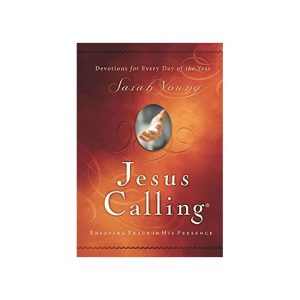Description
“The Dragon’s Prophecy: Israel, the Dark Resurrection, and the End of Day” sounds like the title of a speculative fiction or apocalyptic narrative that may intertwine themes of prophecy, ancient mythologies, and political or theological events. Here’s a breakdown of what such a title might suggest and explore:
### 1. **The Dragon’s Prophecy**
– **The Dragon**: In many mythologies and religious texts, dragons are often associated with chaos, evil, or destruction. The “Dragon’s Prophecy” could symbolize a foretelling of great upheaval or a looming, transformative event. In some interpretations, dragons are linked to ancient powers or dark forces, often in a symbolic or literal battle against good or righteousness.
– **Prophecy**: Prophecies are common in both religious and apocalyptic stories. This could refer to a prediction made by a divine or supernatural figure, offering insight into the future or the coming of a significant event. The “Dragon’s Prophecy” could be a warning about an impending crisis or a world-changing transformation.
### 2. **Israel**
– **Israel as a Key Player**: In many religious and apocalyptic scenarios, Israel is often viewed as a central nation or people. In Judeo-Christian traditions, Israel is significant in the context of God’s promises, end-time prophecy, and the return of a messianic figure. The nation’s role could represent a pivotal point in a larger cosmic battle between good and evil, as seen in biblical texts like the Book of Revelation.
– **Modern Context**: Israel’s contemporary political situation, including tensions in the Middle East, could also be referenced here. This might involve the idea that modern geopolitical issues intersect with ancient prophecies, such as the return of a messianic figure or the eventual fulfillment of promises made to the Jewish people.
### 3. **The Dark Resurrection**
– **Resurrection Theme**: Resurrection often symbolizes rebirth, the return of something once dead, or the triumph of life over death. In apocalyptic narratives, it can also signify the rise of something dangerous or evil, depending on the context. The “Dark Resurrection” could imply the return of a malevolent force or the awakening of an ancient evil that threatens the world or the stability of Israel.
– **Darkness**: The use of “dark” suggests that this resurrection is not benevolent or hopeful, but perhaps a harbinger of doom or the rise of a powerful, destructive force. It may reference the return of an evil or oppressive power, or a tragic cycle that brings more suffering than salvation.
### 4. **The End of Day**
– **End Times**: “The End of Day” strongly evokes the idea of the apocalypse or the final stages of humanity’s existence. This could symbolize the end of the current world order or a cataclysmic event that leads to the collapse of civilization as we know it.
– **Final Battle**: Often associated with the “End of Days” is the concept of a final, ultimate battle between forces of good and evil, as predicted in biblical prophecy (for example, the Battle of Armageddon in Revelation). Israel’s role might be central in this battle, with the fate of the world or humanity resting on its outcome.
### Potential Themes and Connections:
– **Apocalyptic and Prophetic Literature**: The title evokes elements of apocalyptic texts, such as the Book of Revelation, which depicts the rise of the Antichrist, the return of Christ, and the final judgment. The idea of Israel as a focal point suggests a religious or biblical setting, possibly involving a divine reckoning.
– **The Dragon as a Symbol**: The dragon could symbolize Satan or a major force of darkness that opposes divine will. The “Dark Resurrection” could imply a return of an ancient evil figure (perhaps in the form of a messianic figure twisted to serve dark ends).
– **Resurrection and Renewal**: On a more symbolic level, the “dark resurrection” might also refer to the re-emergence of oppressive ideologies, totalitarian regimes, or destructive forces in the modern world, using Israel as a symbolic or literal battleground for this struggle.
– **Geopolitical Tensions and Prophecy**: Given the modern significance of Israel in both geopolitical and religious contexts, the narrative could merge contemporary concerns about conflict, religion, and prophecy, possibly focusing on how ancient scriptures predict the struggles of the present and future.
### Possible Interpretation:
“The Dragon’s Prophecy: Israel, the Dark Resurrection, and the End of Day” could be a tale or meditation on the intersection of ancient prophecy, modern geopolitics, and apocalyptic futures. The “dragon” may represent an overarching evil or destructive force, with Israel caught in the middle of these cosmic forces. The “dark resurrection” hints at the return of this malevolent power, which could either reshape or destroy the world, with the “End of Day” signifying the ultimate conclusion of this cycle.





Reviews
There are no reviews yet.